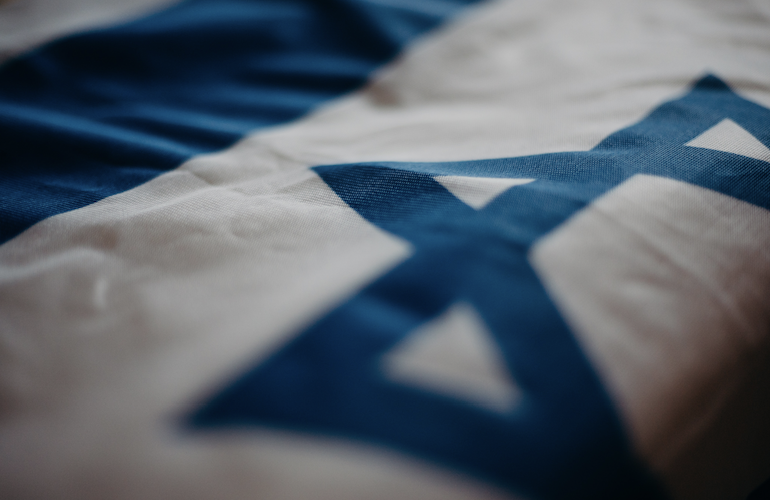By Rachel Wine
On November 17th, outgoing Israeli Interior Minister Ayelet Shaked forwent the unanimous recommendation from a committee on refugee policy and rejected the asylum request of a young Sierra Leonian woman fleeing female genital mutilation/cutting (FGM/C). The Minister cited several reasons for her decision, many of which included problematic assumptions about FGM/C. I’ll aim to unpack these and provide points of consideration regarding power, politics, and FGM/C.
FGM/C is not a “developing countries” issue.
In reference to the Geneva Convention relating to the Status of Refugees, Shaked insisted that it was “not designed to address all of the difficulties and hardships suffered by hundreds of millions of people in developing countries.” This false belief that FGM/C only occurs in developing countries can be used to other those affected by the practice and absolve responsibility for taking action. In reality, FGM/C occurs in 92 countries, including the United States. Were this asylum-seeker from Canada or the United States, would Shaked's decision to deny refugee status stuck?
What constitutes a trauma that is “sufficient” enough? And who has the power to declare it as such?
There is a discriminatory tone to Shaked’s point about the Geneva Convention too, as she insists “a threshold of some kind… as sufficient grounds for persecution” is necessary for considering refugee status. The WHO has declared FGM/C a human rights abuse, and therefore I do not believe anyone has the right to question the validity of this fleeing woman’s struggle, much less someone with power and influence like Shaked. Considering the Minister’s involvement in Israel’s nationalist politics, it is possible that her decision is part of a larger agenda to keep certain racial groups out of the country, which should disqualify her from making decisions regarding refugees and asylum seekers.
FGM/C is not a cultural practice and cannot be compared with male circumcision.
To further reinforce her decision, Shaked falsely conflates FGM/C with cultural identity by claiming that “some [forms of FGM/C] are similar or milder than ceremonial male circumcision.” To assign cultural significance to FGM/C also serves as justification for the practice in the name of preserving tradition, much like Shaked is trying to do with male circumcision in Jewish populations. Furthermore, the assumption that FGM/C is a cultural or religious practice denies the reality that FGM/C is globally pervasive, and cannot be lineated with or justified by any one identity, be it religion, culture, or ethnicity. While both culture and religion are large reasons that FGM/C continues, and institutions that uphold the social norm of FGM/C, this harmful practice must be seen as gender-based violence, a suppression of feminine sexuality and freedom, as an attempt to intimidate and control. To deny this truth is to enable the continuation of this violence, and we cannot let culture or religion continue to be an excuse for this human rights violation.
No one form of FGM/C is more harmful, and all iterations of the practice are damaging to survivors.
Finally, Shaked undermines the trauma inflicted by millions of survivors by claiming: “only a portion of [the forms of FGM/C] have the potential to inflict sufficient serious harm that could be considered persecution.” This statement invalidates the lived reality of every survivor, and reveals Shaked’s lack of knowledge on the practice. This again raises the question of who can be granted authority to make such decisions, and speaks to the need of organizations like Sahiyo, who work tirelessly to educate and dispel falsities that are harmful and dangerous.
A note from the author: I often question what my role as an activist should look like. As a white Jewish woman, I know it is not enough to remember the oppression of my own ancestors; as Fannie Lou Hamer said, “nobody’s free unless everybody’s free.” I believe the critical work of activism for a person of privilege such as myself must encompass standing with and supporting those who face oppression in all of its iterations and holding members of your community accountable for problematic and dangerous behavior. When other Jews fail to use their privileges in standing against oppression, and particularly the oppression of non-Jews, I must reckon with the impact of these choices. To be the descendent of an oppressed people, and yet still play a role in the oppression of others, is a disgrace to our ancestors and their legacy of survival; this survival is only made possible through communal care, as well as solidarity with other marginalized groups. I encourage everyone to consider the impact of your choices and the choices of your peers. Hold yourself, and others, accountable. We must use the power we have to protect each other to the best of our ability.
Finally, I believe anyone of the Jewish faith who supports Shaked’s decision should turn to this teaching from the Torah: “The strangers who reside with you shall be to you as your citizens; you shall love each one as yourself, for you were strangers in the land of Egypt” (Leviticus 19:36).

